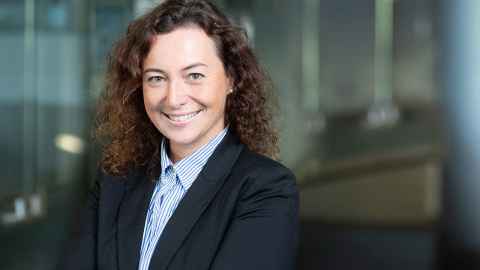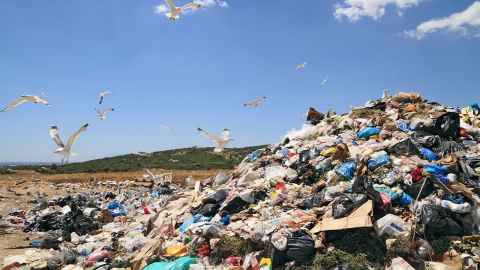A holistic new model to support the reuse of hard plastics, like those found in vehicles and computers, is being developed.

Novel ways to reduce plastics sent to landfill are being explored by University of Auckland researchers, with the help of $11.7 million awarded this month as part of the government's 2022 Endeavour Fund.
Shaping a sustainable circular plastics market and the infrastructure needed requires a large-scale collective effort, says Business School academic Dr Julia Fehrer, one of an interdisciplinary team working on the project to increase the reuse of plastics by New Zealand businesses.
Associate Professor Fehrer, who is working with a team that includes Associate Professor Johan Verbeek and Professor Simon Bickerton of the Faculty of Engineering, as well as Professor Deb Polson at RMIT University in Melbourne, is investigating new digital infrastructure and tools to help stakeholders engage in a more transparent and viable circular plastics market.
Back in 2019, says Fehrer, Verbeek and Bickerton were looking to collaborate with researchers from the Business School with expertise in circular economies.
"They understood that new cutting-edge technology to reform plastics will only be accepted and implemented if the market is ready for it.
"I found it incredibly interesting to learn about their work regarding reusing and reforming thermoplastics, such as those that you find in your PC or your car interior, and their ideas about how to preserve and even increase the value in those kinds of plastics through blending different plastic types. This solves one challenge in New Zealand, the fact that we don't have enough plastic volume to simply re- and upcycle all the different thermoplastic types."

Fehrer, Verbeek, Bickerton and Polson decided to work together to develop a holistic plan.
The Faculty of Engineering scientists are working on a technique to create new materials from blends of different types of plastics, while Polson and Fehrer, whose research is centred around market shaping for social change, sustainable value cocreation and ecosystem innovation, are exploring the best ways to shape a functioning circular plastics market in New Zealand.
This, says Fehrer, can be achieved through co-designing new digital tools to increase the transparency of plastic supply, quality and availability, together with the employment of new interactive user interfaces that can help stakeholders make decisions and engage in a circular way of doing business.
"We were delighted to be awarded the funding this year. We applied for funding three years in a row, and a key part of our work is offering a transdisciplinary solution - we agreed early on that we can only change the situation if we respond to the plastic problem with a holistic approach that focuses on the economic impact as well as the environmental and social impact for New Zealand."
Fehrer is working to create a new economic circular model for the hard plastics industry that is aligned with the values of mātauranga Māori.
In collaboration with a team of marketing, strategy and innovation scholars, she's drawing on the latest market shaping theory, as well as methods used in systems, interaction, and games design, and is looking to countries like Finland, Sweden and Germany, where best practice circular approaches to waste management and plastics upcycling are apparent.
Despite strong examples, it won't be easy, says Fehrer.
"Currently, 8.6 percent of the global economy could be considered circular, and there are very complex issues behind the low uptake of circular economies. There can be unintended consequences to becoming more circular. For instance, we often forget the impact new waste management and supply chain processes can have for emerging economies. Thus, it's crucial for our programme to acknowledge and embrace the complexity of the plastics problem."
Other barriers include a lack of information on supply, quality and availability of materials, as well as the costs required for technological developments, and slow returns, says Fehrer.
"Efforts by single companies to transition toward a circular economy can only fully unfold if there is a market infrastructure in place that allows for building trust, transparency, collaboration and competition. We now have the opportunity to shape our plastics market system and to develop ways to support businesses to become more circular in their plastics use."
The five-year plastics project, led by the Faculty of Engineering and the Business School, is supported by a range of partners, including RMIT University in Melbourne and crown research institutes Scion and GNS Science.






